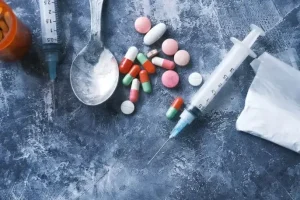What Does Alcohol Do to Your Body?

Alcohol consumption can inhibit the activity of thrombin, making it more difficult for your body to form a blood clot. Binge drinking is behavior that raises blood alcohol levels to 0.08%. That usually means four or more drinks within two hours for women and five or more drinks within two hours for men. Many people drink alcohol as a personal preference, during social activities, or as a part of cultural and religious practices. People who choose not to drink make that choice for the same reasons. Knowing your personal risk based on your habits can help you make the best decision for you.
What are blood thinners? An overview

Contrary to popular belief, alcohol does not actually thin the blood. Blood thickness, also known as blood viscosity, is not directly influenced by alcohol consumption. The composition and consistency of blood remain relatively constant, regardless of alcohol intake. Dr. Harb moved to New York City, choosing a career path in academic medicine as an assistant professor at the Donald and Barbara Zucker School of Medicine at Hofstra/Northwell. There, he teaches and works with cardiovascular and medical trainees as well as medical students. He is a Fellow of the American College of Cardiology (FACC) and American board-certified in general cardiology, echocardiography, and stress-testing, and nuclear cardiology.
- Researchers have found that low-to-moderate drinking could reduce certain processes that lead to heart disease and inflammation.
- Although alcohol does not directly thin the blood, it can have an impact on blood clotting.
- Your healthcare provider also prescribes you the correct dosage for you depending on a number of factors.
- Alcohol is mostly broken down in the liver, which serves to filter out toxins from the blood.
Risks of moderate alcohol use
Since blood thinners are designed to thin the blood and alcohol has that same effect, drinking alcohol while on blood thinners should be avoided to prevent excessive thinning. That said, some studies have found that low to moderate consumption of alcohol is generally safe for people on blood thinners. According to research, having one or two drinks infrequently is considered safe.
Alcohol use: Weighing risks and benefits

This can potentially increase the risk of clotting complications in individuals who are already at risk, such as those taking blood thinners. One of the primary effects of alcohol on blood clotting is its ability to interfere with the function of platelets. Alcohol can make platelets less sticky, resulting in a reduced ability to form a stable blood clot. This can increase the risk of bleeding, particularly in individuals who consume excessive amounts of alcohol.
Thrombin inhibitors work by attaching to thrombin, keeping it from assisting clotting processes. They are often used as alternatives to heparin and its variants, especially to prevent the formation of clots after certain medical procedures. Some people may need blood thinners for a few months, while others may require lifelong therapy. A doctor will determine the appropriate length of time based on an individual basis. Blood thinners are crucial in preventing and treating various cardiovascular and circulatory conditions. There are two main types of medications — anticoagulants and antiplatelets — a doctor may recommend depending on the reason for needing them.
Blood Thinners and Alcohol: Interactions, Risks, and Side Effects

They often treat and prevent life-threatening conditions that can happen because of blood clots, like strokes, heart attacks and pulmonary embolisms. These work is alcohol a blood thinner by preventing or undoing coagulation, which is how your body starts to make clots. Different anticoagulants work at different parts of the coagulation process. For instance, some anticoagulants do this by competing with vitamin K, which your body needs to make proteins called clotting factors.
- Depending on which one your healthcare provider prescribes, you may be able to take it indefinitely.
- “Excessive alcohol consumption can cause nerve damage and irreversible forms of dementia,” Dr. Sengupta warns.
- The British Heart Foundation (BHF) publishes that while post-menopausal women who drank alcohol did seem to have a lower rate of CHD, they also had a higher rate of breast cancer.
- In general, your healthcare provider is the person who can best explain any possible reasons you shouldn’t take anticoagulant medications.
- However, individuals who consume alcohol excessively or have underlying health conditions should be cautious and consult with a healthcare professional.
